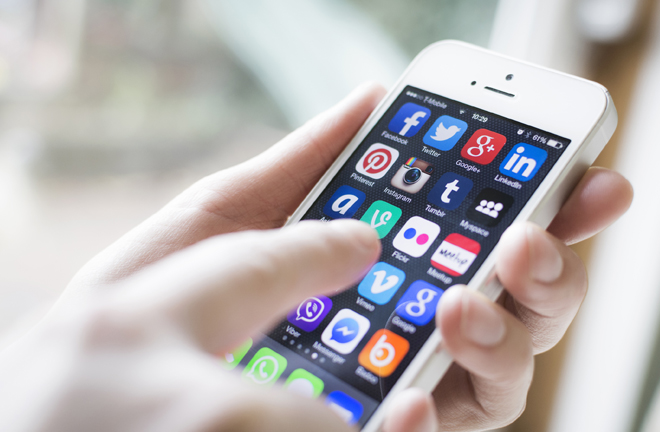Smartphones offer new source of big data

Because it is reflective of ordinary people’s lives, big data from smartphones has considerable potential for research.
With the proliferation of cell phones and rapid development of mobile Internet technology, researchers are now turning their attention to the data that can be collected from cell phones and ways it can be applied. However, because there is a lack of legislation or guidelines regarding this kind of big data, this area of research is relatively underdeveloped.
Recording lives
According to the China’s Ministry of Industry and Information Technology, the number of Chinese smartphone users had reached 1.36 billion by the end of 2015.
Huang Xinrong, dean of the Management Philosophy Studies Center at Jiangxi Finance and Economics University, said that the data being collected mainly relates to social network usage, scanned items, behavior and consumer data.
In regard to the data itself, Du Haifeng, a professor from the School of Public Policy and Administration at Xi’an Jiaotong University, pointed out that the data from smartphones is broader, more comprehensive and is often considered more private than other kinds of big data. Because smartphones play a key role in the everyday lives of ordinary people, they record genuine social relationships and behavior, therefore this data has the potential to precisely and systematically reflect their behavior. According to the 37th Report on the Statistics of China’s Internet Development, by the end of 2015, the number of people who use smartphones to access to the Internet had reached 620 million. Every smartphone user is a data producer. This data suggests that smartphones have become the most popular way to access the Internet, Huang said.
Future research
Because it is reflective of ordinary people’s lives, big data from smartphones has considerable potential for research. For example, there are now research projects looking into smartphone data in order to promote financial services and track epidemics.
Duan Weiwen, a research fellow from the Institute of Philosophy at the Chinese Academy of Social Science, argued that big data from smartphones provides new ways to utilize data resources and experimental platforms for sociology, economics, communication science and new media. It is facilitating the digitization of humanities studies and is deepening research on social sciences, leading to the establishment of many new interdisciplinary areas of study based on data, such as event history analysis, public opinion and emotional communication, linguistics of mobile media and group cognitive sociology.
Du and his research team attempted to use the big data from smartphones to analyze the rules that govern interpersonal relationships in Chinese society. Supervision projects related to population flows that were conducted by the Chinese Academy of Science also obtained related data from smartphones. Niu Xinyi, a professor from Tongji University and his team are applying the data to urban planning. “Using the data to identify and estimate functional areas will provide new perspectives through which we can examine people’s job locations, residential areas and leisure habits,” Niu said.
Abiding by the law
Parties collecting big data from smartphones now face the tough problem of privacy. Data from smartphones efficiently catalogs people’s lifestyles, and thus is valuable to areas including urban planning, transportation and tourism. However, access to the data is governed by a set of rigid supervision measures. Huang said that data from smartphones contains a lot of valuable information. Therefore, big data from smartphones should be explored and utilized on the premise that laws and social morality must be observed.
Duan said that research on privacy rights are relatively weak. The right to access one’s personal information lacks effecient protection. Related laws and legal frameworks are not clear enough. Therefore, the research must appropriately deal with data ethics and privacy rights in order to protect citizens and catch up with the international community.
Niu said that in relation to ethical considerations, although research projects utilizing big data from smartphones focus on the general public rather than individuals, legislation on big data must be made to protect individual rights. Du suggested that in regard to research on national development strategy, government departments should collect useful information from smartphones and release it to research institutions after the information is considered safe to disseminate. Meanwhile, researchers should respect all data that contains private information. In addition, the research should not be geared toward a profit motive, and researchers must inform the public about the scientific and social uses of data collected from smartphones.
Zhang Qingli is a reporter at the Chinese Social Sciences Today.

 PRINT
PRINT CLOSE
CLOSE